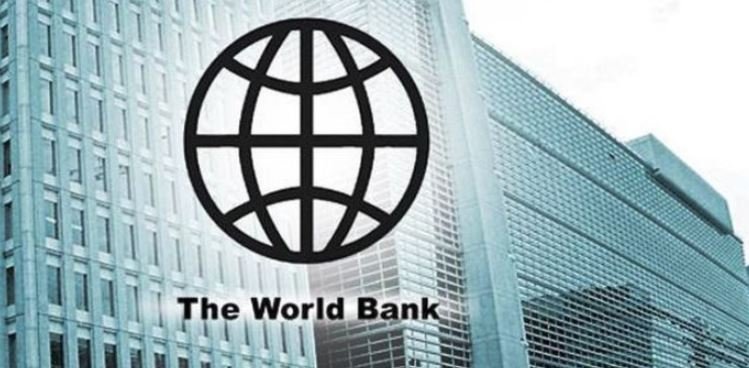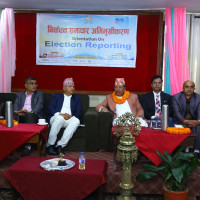- Sunday, 22 February 2026
WB's new CPF for Nepal prioritises jobs, resilience
By A Staff Reporter,Kathmandu, June 4: The World Bank’s Board of Executive Directors discussed the new 7-year Country Partnership Framework (CPF) for Nepal on May 29, 2025.
According to a press statement of the WB, the CPF focuses on the fundamentals of job creation and building resilience to natural disasters, including those linked to climate change.
“Creating jobs is not just at the heart of our mission, it is also the lifeline that can drive Nepal’s sustainable and resilient growth,” said David Sislen, World Bank Country Division Director for Maldives, Nepal, and Sri Lanka.
“The CPF builds on more than 60 years of partnership between the World Bank Group and Nepal and will leverage development partner collaboration and private sector solutions to drive growth, job creation, and investments.”
Under the CPF, the World Bank Group aims to make available about USD 2.7 billion to achieve the CPF’s outcomes of helping create more and better jobs, strengthening connectivity and access to services, and enhancing resilience to natural disasters and climate risks.
In the immediate term, the World Bank Group will prioritise policy reform for growth, tourism, digital connectivity, and integrated urban development as engines of growth and job creation.
This will include creating a more investment-friendly environment with reforms that enable private sector-driven growth and investment; enhancing digital connectivity and access to digital government services for better productivity, governance, and service delivery; and improving the competitiveness and services of urban centers like the Kathmandu Valley and secondary cities to unlock their potential as tourist and investment destinations.
“We support Nepal in creating more and better jobs, bolstering disaster preparedness, and contributing to a sustainable future by mobilizing domestic and international private capital, promoting public-private partnerships, and enhancing institutional capacity,” said Imad N. Fakhoury, Regional Director for South Asia at IFC.
As a cross-cutting priority, the World Bank Group will help strengthen the accountability and effectiveness of public sector institutions to improve the public sector’s capacity to deliver results for Nepal and its people.
“MIGA is committed to supporting Nepal’s development goals by providing political risk insurance and leveraging other guarantee instruments through the World Bank Group Guarantee Platform,” said Şebnem Erol Madan, Director for Economics and Sustainability of MIGA.
The CPF is informed by a comprehensive analytical and evaluation programme, broad-based consultations with stakeholders across all seven provinces, and the government of Nepal’s 16th Plan, which lays out its national development priorities.
USD 257 million provided to improve electricity, irrigation services
Meanwhile, World Bank’s Board of Executive Directors approved two projects for Nepal totaling USD 257 million aimed at enhancing electricity distribution services and improving irrigation services to boost agricultural productivity.
The Electricity Supply Reliability Improvement Project ($120 million) will strengthen the electricity distribution network and enhance electricity supply to users in Koshi, Bagmati, Karnali, and Sudurpashchim provinces.
The project, led by Nepal Electricity Authority, will focus on constructing new distribution substations, upgrading existing networks, and implementing an automated system for real-time monitoring of distribution networks to enhance operational efficiency.
The Modernisation of Rani Jamara Kulariya Irrigation Project - Phase 3 ($137 million) aims to improve irrigation services and agricultural productivity by expanding access to year-round irrigation services, increasing farm productivity, and enhancing climate resilience in Kailali district, Sudurpaschim Province.
Jointly implemented by Department of Water Resources and Irrigation and Department of Agriculture, this project will scale year-round irrigation to an additional 17,500 hectares benefiting 160,000 people.
“An uninterrupted electricity supply and adequate, year-round irrigation services are fundamental inputs for Nepal’s sustainable development,” said David Sislen, Country Division Director for Maldives, Nepal, and Sri Lanka.
“The projects emphasise improved connectivity and the promotion of clean electricity generated from hydropower, alongside integrated agricultural support services to farmers to help build resilience against climate and disaster risks.”
The projects also include capacity-building initiatives for the Nepal Electricity Authority and the Water Users Association to promote innovative solutions and strengthen institutional systems for the effective management and sustainability of infrastructure.



-original-thumb.jpg)











